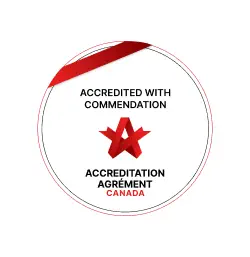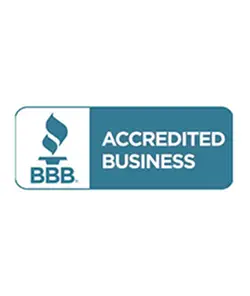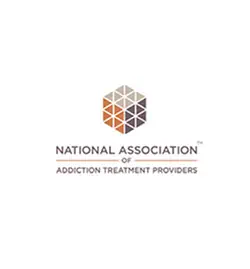 Success Rate:
Read Now
Success Rate:
Read Now
 Success Rate:
Read Now
Success Rate:
Read Now
Get a deeper understanding of amphetamine addiction and abuse symptoms and learn all you need to know, from what to expect to the different types of treatments.

Amphetamines are a class of synthetic stimulant drugs (also known as “uppers”) that speed up the central nervous system.
They allow messages to move faster between the body and brain, making users feel more alert and energized. Prescription amphetamine is used to treat narcolepsy, attention deficit hyperactivity disorder (ADHD), obesity, and depression. However, amphetamine also causes euphoric feelings and a sense of power, often leading to its misuse. Illegally obtained amphetamine is typically used to improve cognitive ability, enhance sociability, and boost libido. Using amphetamine without a prescription carries a high risk of abuse and addiction.
It’s vital to seek help immediately if you or a loved one is struggling with the effects of amphetamine abuse and addiction. The Canadian Centre for Addictions offers amphetamine addiction treatment programs at our rehab in Ontario.
At the Canadian Centre for Addictions, we take pride in our rehab accreditation, which ensures that our services meet the highest standards of care, providing you with effective and safe treatment.

Through our work alongside Accreditations Canada, we have earned the seal of approval from one of the largest and most respected organizations in health and patient care. They proudly endorse Canadian Centre for Addictions and we proudly carry their certification as a promise of quality care to our clients.

As a premier and professional rehabilitation facility, we are recognized as a top business in our field by the Better Business Bureau. Our dedication to operating as a legitimate and honest addiction treatment center helps us stand out to our community and those we wish to help.

As a member of this respected Canadian organization, we are part of a community of leaders in addiction specialists who put clients first. This helps us stay on top of trends and be a part of a movement of passionate professionals who truly want to make patient care a priority.
Freedom from addiction requires a continued connection to recovery. Our addiction centres offer aftercare addiction services accessible to all program graduates for life and available anywhere in North America. Canadian Centre for Addictions’s Lifetime Aftercare is an important tool that helps you maintain your new healthy life.

Knowing that you’re not alone is a crucial aspect of the journey to authentic addiction recovery. Group Counselling and Therapy is one of the many levels of addiction treatment care that can help people connect more directly with their addiction and the support needed to transition to the best version of yourself.

Canadian Centre for Addictions’s rehab centres help individuals understand their addiction and the healthier coping strategies available by engaging them in individual counselling with our Certified Addiction Counselors, Psychotherapists and other Mental Health Professionals.

Canadian Centre for Addictions’ inpatient rehab facilities in Cobourg, Ontario offer a safe, comfortable, 24/7, Medically Supervised Program that provides all of the professional addiction services needed to guide you to a healthy recovery. Providing Withdrawal Management and Detox Services as well as one-on-one Group Therapy treatments by Certified Addiction and Mental Health professionals. Canadian Centre for Addictions will explore many different treatment modalities to help develop and cultivate the tools needed to address and process the underlying issues that led to addiction in the first place.

Having a loved one who refuses to acknowledge their addiction or is in denial about it entirely can leave the family feeling helpless. Canadian Centre for Addictions offers Intervention Counselling from trained addiction professionals who will provide the coaching and facilitation necessary to have your loved one accept addiction help that will change their life.

Working one on one with a Certified Addictions Professional, Canadian Centre for Addictions’s addiction rehab programs explore outpatient treatment modalities that best resonate with you to develop healthier coping mechanisms that will address the underlying issues that led to addiction.

Stimulants affect people differently. A problem of amphetamine addiction builds through a mix of biology, mental health, environment, and access. While no single cause explains every case, the factors below commonly shape how use begins, escalates, and becomes hard to quit. When the pattern tips into amphetamine abuse, several of these influences are usually in play.

If you’re going through a tough time with drug addiction, you don’t have to face it alone. Our Luxury Rehab Centres in Port Hope and Cobourg, Ontario, are quiet, comfortable places where you can take a real break and start fresh. Both locations support people seeking amphetamine rehab, with discreet intake, medical oversight, and a plan tailored to your goals.
In Port Hope, our private rehab centre feels more like a peaceful retreat. Every room has calming lake views, a fireplace, and multiple decks to relax on. It’s a space to breathe, slow down, and focus on getting better. Alongside fresh, 5-star meals prepared by our chef, you’ll have access to on-site clinicians who understand stimulant withdrawal—fatigue, low mood, sleep disruption—and how to manage it safely.
Over in Cobourg, the vibe is just as warm and welcoming. It’s a place where you’ll be supported by people who truly care. We’re here to listen, guide you, and help you feel more like yourself again. Your care may include cognitive behavioural therapy, motivational interviewing, and contingency management—approaches shown to help with amphetamine use.
Each rehab treatment program includes one-to-one therapy, small group work, family support when helpful, and a relapse-prevention plan you can actually use at home. We also coordinate gradual return-to-work strategies for people with amphetamine addiction, boundary setting, and healthy routines, so you leave with tools that last. And when you’re ready to step down, we help you transition to aftercare and community supports, ensuring the next part of your recovery is steady, informed, and supported.
Amphetamine withdrawal symptoms appear when a dependent person cuts down or stops use. They’re shaped by how long and how often you used, the amount taken, any co-occurring health conditions, other substances in the mix, and individual factors like age and sex. After a period of amphetamine abuse, many people feel an acute “crash” in the first 24–48 hours, a sub-acute phase over the next one to two weeks, and lingering symptoms that can last for weeks to months.

Common symptoms include:
Less common but important to note: short-lived paranoia, temperature dysregulation (feeling unusually hot or cold), and disrupted sleep-wake cycles even after initial oversleeping.
Did not show improvement after
The Canadian Centre for Addictions
Program
Presented in Normal ranges at start
of The Canadian Centre for Addictions
Program
Showed significant improvement after
The Canadian Centre for Addictions
Program
Fatigue, hypersomnia, low mood, irritability, anxiety, increased appetite, slowed thinking and movement, vivid dreams, and strong cravings are typical. Symptoms often begin within 24–48 hours and can linger for weeks; mood changes may persist longer. Seek support if depression worsens or suicidal thoughts appear.
Evidence-based care centres on psychosocial therapies—especially contingency management—along with CBT and motivational approaches. Care may be delivered through outpatient services (e.g., RAAM clinics) or residential rehab treatment with structured therapy and aftercare.
There’s no widely approved “cure” medication yet. Some off-label options show promise (e.g., extended-release naltrexone plus bupropion), and Canadian trials are evaluating lisdexamfetamine combined with contingency management. Medication decisions should be made with a clinician familiar with stimulants.
No referral is required to begin care at the Canadian Centre for Addictions. You (or a family member/employer) can self-refer for a confidential assessment, and—if appropriate—admission to our Port Hope or Cobourg residential programs for rehab treatment focused on amphetamine addiction. With your consent, we coordinate with your family doctor or psychiatrist, but it isn’t a prerequisite. Prefer public options? Ontario’s RAAM clinics also accept walk-ins; our team can advise on the best fit and help you transition into the level of care you need.
Before discharge, you’ll have a relapse-prevention plan and follow-up options. We provide ongoing aftercare groups and help you connect with community resources in Ontario to stay on track after amphetamine abuse treatment.
Contact Us
Start Getting Better Now
Fill out the below form and get in touch with
a treatment specialist who can help